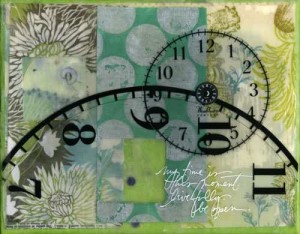 At 15, I lived in a dormitory at a Mennonite boarding school less than an hour from my home city, but I felt like I was 3,000 miles away from anything familiar.
At 15, I lived in a dormitory at a Mennonite boarding school less than an hour from my home city, but I felt like I was 3,000 miles away from anything familiar.
That first year was a marathon of sleepless nights during which I scribbled poetry and listened to my roommate wrestle audibly with chastity in her sleep. I had told her to just get in the back seat of her boyfriend’s car already and get felt up, but she had burned all but her Amy Grant tapes for the Lord the previous summer. “Unless the Jesus Returned” was present in Jason’s car to bless their teenage grappling, midnight paroxysms of morality it would be. Sleep was not in my near future.
It was with that in mind that I went home for a vacation. Aside from the one mandatory family event, church on Sunday morning, my plan was to commit myself to a strenuous regimen of inertia for most of that 48 hours with extended periods of uninterrupted sleep. Slothfulness was divine, and I planned for little aside from a seat on my father’s recliner, endless bowls of cereal, and a television marathon to drug the angst out of me.
On Sunday morning, I dutifully planted myself on a church pew, cursed the itch of new nylon stockings, and entertained myself with the silent addition of the phrase “under the covers at night” to the ends of hymn titles. “Oh, For A Thousand Tongues” was my perennial favourite. An uncle had taught me this pastime while snickering in the back pew one Thanksgiving, and its verboten smuttiness never lost its luster.
Finally, after a dawdling sermon and the closing hymn, everyone began their slow exit down the aisles. I do not know if this is a particularly Mennonite trait, but I have never seen a more slow-footed bunch of people. I was just wondering if I was too old to do the old drop-and-roll exit under the pews when my great uncle Rudy touched my arm.
“I have something to tell you,” he said. “But you have to keep it a secret.” His long eyebrows grazed his eyeglasses as he inclined his head to show his seriousness
“Sure,” I agreed. I waited for him to envelope both my hands with his on top of his cane and tell me I was his favourite yet again.
“I am going to die on Wednesday,” he said.
His tone was conspiratorial. Although part of me was sure that he must be joking, another part of me knew that he was not. The thrum of low voices in the sanctuary fell away as though my hearing were gone.
“It’s alright, you know. I’m scheduled for heart surgery. I told my wife and my family that I will make it, but I was lying to them.”
While he stroked the down on my arm with his soft, old skin, I wondered how he could be so certain and yet so calm. At 15, mortality seemed the most damning strike against evidence for a loving God.
He leaned in, more quietly now, “Don’t tell the others, but I know they call me the Wise One.” I already knew that he had this moniker, but I was shocked that he knew it, too. “You are the next one after me,” he said, nodding his head to punctuate his point. “You are the next One.”
His words hollowed my torso out, and I could no longer feel the press of churchgoers against my arms. I was suddenly, in all likelihood, much too large for my own skin. Possibility crowded me down into a small stone.
• • •
During the drive back to the dorm, I watched with an empty mind as bare fields blurred past the window. I felt I had been charged with a task, or that he wanted something of me, or that I was that something, or that something else entirely was happening that I did not understand, and I wanted him to be wrong. I did not want to believe him, but I had to honour him with my belief. He would die.
A few hours later, hopeless and sad, I realized I could only do what I could do, and I wrote him a letter:
Dear Rudy, I began, Tonight, I am a very lucky person. Most people never get to say the goodbyes they want to before their loved ones die, but with you I can.
I told him of my first memories of him when I was five years old and how our friendship had made me more confident and strong, that he would be with me throughout my days, and that part of his life would continue here with me. I told him that he saw me when no one else did and that I loved him. I folded the loose leaf paper precisely and slept with the sealed envelope until the next day when the letter could be mailed.
My goodbye reached him on the morning of his surgery, and I was told that he read it aloud with his family just before he was wheeled to the operating room.
Several hours later, after they had worked on his heart and sewn him back together, he slept himself away and out of this life. It went just as he said it would. I waited for the news of his death all that day, and when my mother called to tell me, it felt matter-of-fact, as though she were telling me that she was going to buy eggs at the store. “Of course,” I said.
At the funeral, I found myself to be a minor celebrity among the other mourners. News of my letter had spread, its fame grounded in its last-minute arrival and my seemingly clairvoyant insight into the timing of his death. At the last minute, it was suggested that I deliver the eulogy, but, frankly, the idea made me uncomfortable. Despite our close connection, I was a grand niece who knew relatively little about this man whose life had spanned the generations of people who had crowded into that church
We did not see each other often. I knew Rudy’s smell, the length of his watch chain from pocket to buttonhole, how his hand felt when it covered mine on top of his cane, that his suits had pinstripes, and that the spots on his bald head were the colour of brown sugar. We shared an intimacy beyond our seemingly casual friendship, though, and when we spoke, we were not alone in the world. My letter to him had apparently made this connection public, but it was something I did not want to speak of to a sanctuary full of his people. We were still our own secret. We were an affair of the heart.
While another relative delivered the eulogy during the funeral, I began to cry. I was both emptied out and filled to the brim, awash in the sudden recognition of what it was Rudy had given to me a week earlier as we shuffled out of church. He had made me more. He had seen not only his own future but also mine in our own private lineage. I would no longer be the child.
He had made this understood: Life is bigger than you know; move into it. In some way, I would be greater, and I knew that as surely as he had known his own death. Rudy had given, and he had taken away, and I was transformed by his belief.
Previously published by www.schmutzie.com, October 5, 2009. Published with permission.
Photo Credit
“Unstable Bench” evil erin @ flickr.com. Creative Commons. Some rights reserved.
“My Time” ali edwards @ flickr.com. Creative Commons. Some rights reserved.


What a wonderful, amazing story, and so well told! I’m in awe!
Thank you for sharing this story. Beautiful.
i wrote something for my dad when he passed also.
http://www.chakrasyoga.com/journal/2010/2/28/where-sleigh-bells-ring.html
I love the title, it says so much! A testament of hope for those of us who have lost a significant loved one. Embracing life is one of the lesson death is meant to teach us. Not easy …. but something I strive to do whilst emptied out …. yet also filled to the brim. How beautifully expressed. Thank you for sharing your story with us.
I’m glad you’re sharing this one with a wider audience – its such an amazing story.
Brilliant. What an honour. Thank you for writing and sharing with us.